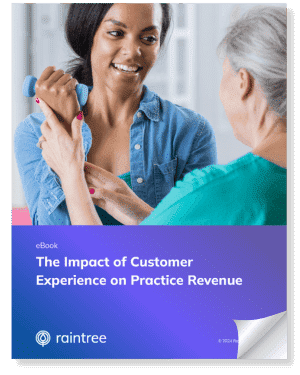
“Data is the new oil.”
You’ll here this phrase often joked about within tech spaces, but it’s becoming more true for all businesses, especially in the healthcare industry.
Today, more and more healthcare practice leaders are finding the right business intelligence software to be a game changer for their practice. It might just be time to find your right fit. So, let this be your guide to all things business intelligence (BI), analytics and reporting!
Why Is Business Intelligence (BI) Critical For Healthcare Providers?
Whereas EHR and EMR software is essential for securely managing patient information in an optimal fashion, analytic platforms offer additional reporting tools that can be easily integrated with other digital healthcare technologies in order to efficiently process large sums of data.
In fast-paced practices, providers need as much support as possible for both saving costs and improving the quality of care. These goals are achieved by having access to BI tools that help visualize where revenue is getting lost, pinpoint where there are opportunities to reduce costs and establish strategic decision making skills for fostering growth in the future.
Some tips for leveraging Business Intelligence tools in healthcare:
- Keep your business priorities in alliance with the analysis being performed.
- Understand that you have more agility and adaptability than previously realized.
- Get comfortable with blemishes in data and learn to work with them instead of around them.
How Has Analytics and Reporting Evolved Over the Years?
Data Mining
With the continuous push for artificial intelligence (AI), natural language processing (NLP) and machine learning, the process of data mining has become less tedious and much more tactical in terms of providers now utilizing powerful algorithms that help determine trends as well as influence data driven decisions. While predictive analysis is the future for successful business intelligence platforms, the healthcare industry has also seen that with access to actionable information and key financial insights, intuitive reporting software does develop more effective marketing strategies in addition to decreasing operational costs.
Personalized Medicine and Prevention
Aside from analyzing clinical performance, BI also allows for positive patient outcomes and improved workflow efficiencies. As data continues to overwhelm facilities, you should make use of an analytics software that aids in individualizing treatment protocols and prioritizing disease prevention efforts. With personalized medicine on the rise, BI also enables the increased analysis of genetic markers and care patterns as well as streamlines management of triage logistics, such as resource demand or patient discharge rates.
Patient Engagement
As patient management and patient engagement become more closely interwoven concepts of healthcare, it is important to remember that BI does not just entail reporting data, but also involves in depth analysis of that data through notifications that alert providers of staff productivity metrics, key performance indicators (KPIs) or even shifts in patient satisfaction. In addition to the obvious clinical benefits of business intelligence, providers should look for important engagement features that will ease the challenges of data storing and sharing. While being able to permit user access levels is important, your BI software also needs to include social integrations and collaboration settings that will help you analyze patient data from multiple sources.
Click here to read an article from Healthcare IT News, that details the success of one of our clients who utilizes Raintree’s fully integrated BI platform.
Start With the Best: Let Raintree Be Your Intro to Business Intelligence
Raintree’s business intelligence platform for rehabilitation therapy practices leverages key financial, operational, and clinical metrics that help you recognize main problem areas, track data trends as well as make data-driven decisions.
Learn about our BI solution for PT, OT, SLP, and multi-specialty outpatient practices today!
Further Reading
- https://www.predictiveanalyticstoday.com/how-to-select-the-best-business-intelligence-software-in-health-care-for-your-business/
- https://www.villanovau.com/resources/bi/business-intelligence-in-healthcare/
- https://www.mckinsey.com/business-functions/mckinsey-analytics/our-insights/accelerating-analytics-to-navigate-covid-19-and-the-next-normal#
- https://healthitanalytics.com/news/understanding-the-covid-19-pandemic-as-a-big-data-analytics-issue
